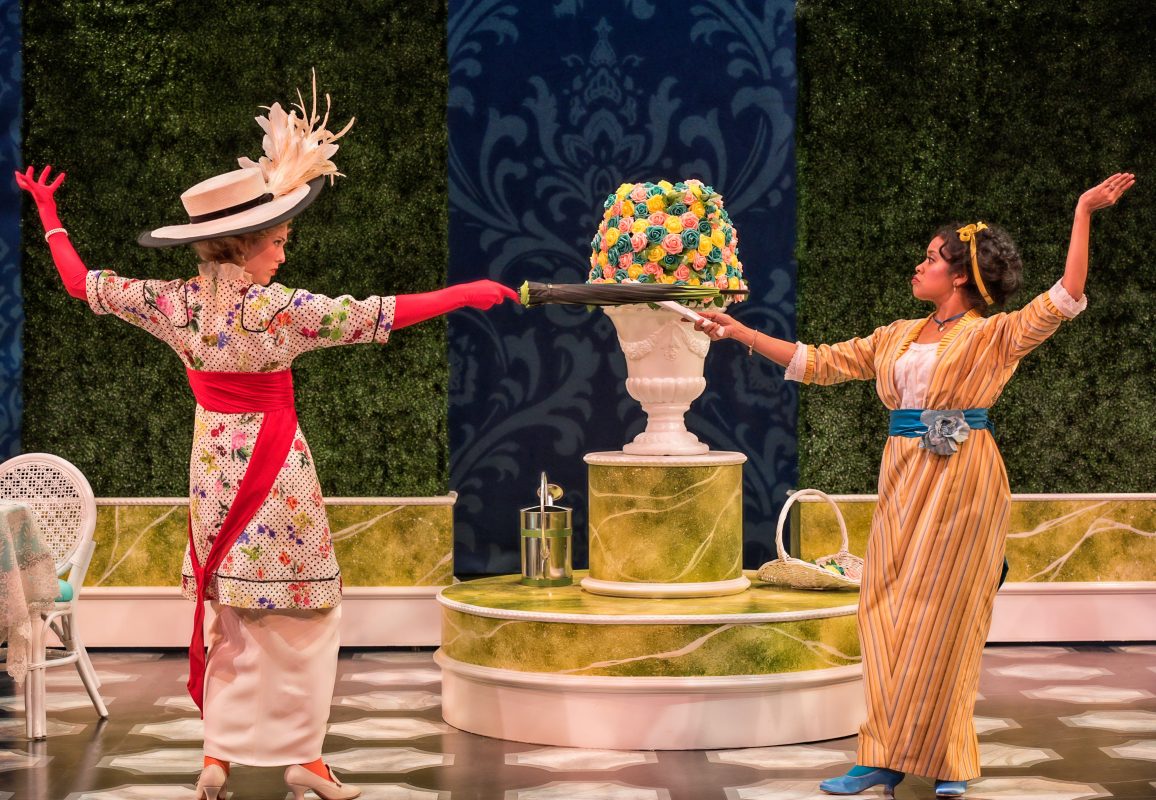
“Oscar Wilde once said” could lead to a great number of things. His unmatched ability to turn a phrase is part of why his short life endures well into the 21st century. But leaving Everyman Theatre on opening night of their new production of The Importance of Being Earnest, the quote that stuck in my head was this: “Man is least himself when he talks in his own person. Give him a mask, and he will tell you the truth.”
While it’s more than likely you once sat in an English class discussing satire and Wilde’s wicked use of it to expose the hypocrisy and, well, silliness of the upper classes, you probably weren’t given a crash course on Wilde’s personal life (his longtime tumultuous relationship with Lord Alfred Douglas would lead to his eventual imprisonment and exile) and how he used coded language to allude to it in his work. While he lived much of his life in whispers, Earnest allowed him to shout through his characters’ unending cleverness.
Everyman has chosen to ditch the 10th grade English vibe and lean fully into this spectacle poking fun at the ridiculous propriety (and lack thereof) of Victorian British life, and the result is a joy to behold. I’ll skip the glossary and the explanation of Wilde’s timeline, as Everyman has provided it right in the program. If you’re interested in an added layer of analysis and queer subtext, you’ll have all the information you need. (And if you’re really interested, the time to see it is during the Go Oscar Wilde! Pride Night, a theater first, which will feature a conversation with director Joseph W. Ritsch on the topic of Wilde’s life and the way it’s woven into his work.)
The version of Earnest that Ritsch, along with set designer Daniel Ettinger and costume designer David Burdick, has produced is a decadent, candy-colored world where demure young ladies wear electric pink and the garden roses bloom in shades previously reserved for Smooth & Meltys.
Gone are the soft pastels and exacting period costumes of many performances, and who can miss them when Lady Bracknell (a bitingly funny Bruce Randolph Nelson in heels and heavy rouge) storms in in several yards of teal fabric, or Algernon Moncrieff (Danny Gavigan sporting a Wilde-esque haircut and delivering some of the best jokes in the play) emerges from playing “It’s Not Unusual” on the piano in a look that could be described as “Oscar Wilde wearing several materials you might find on a great aunt’s couch,” but in a good way?
Having Wilde’s comedic timing to work with is an excellent place to start, but this version of Earnest holds up to the theater’s “great stories, well told” mantra. A cutting comment or absurd aphorism is nothing without the delivery, and this cast nails each one. Pay particular attention to the two butlers, Merriman and Lane (Carl Schurr), who blend in on the page but provide some of the best laughs in a live performance.
Earnest gave us some of the best lines of Wilde’s career (“The truth is rarely pure and never simple,” “All women become like their mothers. That is their tragedy. No man does, and that is his,” etc.), but it is the ending that best sums things up, as endings are wont to do. With the freshness of its design and the effort by Everyman to give this production context and make it the celebration of Wilde that it should be, I could adapt that namesake final line to my own experience. Because, you see, I’ve now realized for the first time in my life the vital importance of The Importance of Being Earnest.
